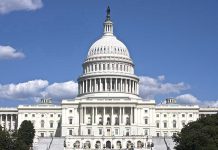
Children’s National Hospital in Washington, D.C. has decided to cease its gender transition medical interventions for minors, a move bound to spark both relief and outrage across the nation.
At a Glance
- Children’s National Hospital will stop prescribing gender-affirming medications for minors by August 30, 2025.
- The decision is a response to escalating legal and regulatory risks.
- The hospital will continue providing mental health and support services for LGBTQ+ patients.
- Attorney General Pam Bondi has vowed to hold providers of gender-affirming care accountable.
Children’s National Ends Gender-Affirming Care
Children’s National Hospital in Washington, D.C., a beacon of pediatric care, has announced a halt to prescribing gender-affirming medications for minors. Effective August 30, 2025, this decision arrives amidst a backdrop of increasing legal scrutiny and political pressure, reflecting a broader national trend. This move follows the issuance of more than 20 subpoenas by the U.S. Department of Justice to doctors and clinics involved in gender-affirming procedures for minors, signaling an aggressive federal stance.
Children’s National has been a leader in providing care for transgender and gender-diverse youth through its Gender Development Program for nearly two decades. The program has offered gender-affirming medications, mental health support, and family counseling, all within a multidisciplinary care framework. The hospital, located in a generally LGBTQ+ supportive jurisdiction, has nonetheless found itself at the crossroads of a national legal and regulatory battle.
Legal and Regulatory Pressures Mount
The hospital’s decision to end these medical interventions isn’t just about health care; it’s about navigating the treacherous waters of legal risk. With the DOJ’s investigation, institutions like Children’s National are feeling the heat, pushed to reevaluate their programs to avoid potential legal ramifications. Attorney General Pam Bondi has made it clear that medical professionals involved in gender-affirming care for minors will face accountability, calling such practices a “warped ideology.”
Despite the halt on medications, the Gender Development Program will still offer essential mental health and support services. This pivot aims to continue supporting the emotional and psychological well-being of LGBTQ+ youth, albeit without the controversial medical interventions. However, the impact on families relying on these treatments is profound, as they now face the daunting task of seeking alternative care options, possibly out-of-state, to continue their children’s treatment.
Ripple Effects and Future Implications
In the short term, transgender youth in the D.C. area will face disruptions in their care, causing significant distress among families. The hospital’s staff will also navigate increased emotional and professional strain as they support affected patients through this transition. The decision sets a precedent likely to influence other institutions, even in states that haven’t imposed local bans.
Long-term, this decision could mark the beginning of a wave of similar policy shifts across the country, further limiting access to gender-affirming care for minors. The economic impact on the hospital could be notable, with potential revenue losses from the discontinuation of its gender-affirming care program. Additionally, families may incur increased costs as they look for care elsewhere, compounding the financial strain.
Broader Implications for Healthcare and Society
The fallout from this decision extends beyond immediate care disruptions. There’s an impending risk of heightened stigma and marginalization for transgender youth, potentially leading to increased mental health crises. The national debate over transgender rights and medical autonomy is likely to intensify, with possible legislative responses looming on both state and federal levels.
The broader medical community is now at a crossroads, facing pressure to clarify care standards and legal protections for providers. This development could stir pediatric hospitals and clinics nationwide to reassess their policies, balancing quality care against mounting legal threats. The conservative perspective sees this as a necessary recalibration, aligning medical practices with legal and ethical standards that protect children.
Sources:
Children’s National Hospital Gender Development Program
Children’s National Pediatric Gynecology Program
Children’s National Statement on Executive Order
Children’s National LGBTQ Care and Support







